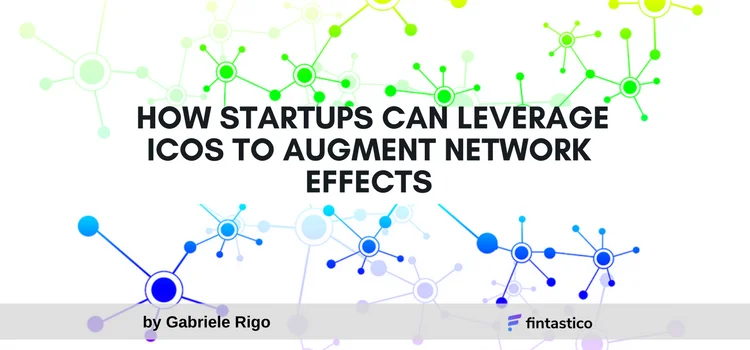- 29/01/2018

The cryptocurrency market is seen by many as a speculative trend. Cryptocurrencies themselves are seen as potential mechanisms of transferring money. The truth is that blockchain allows for the management of more complex systems like entire ecosystems dedicated to a specific task (think about social networks as dedicated ecosystems) and tokens built on top of blockchains allow for new types of organizations thanks to new ways of creating incentives. Let us first define some terms, which will be helpful in explaining the concept.
ICO: a process where a project raises funding over the internet in a distributed way, and contributors receive tokens in exchange which allow them to perform some specific functions and can be transferred trustlessy, thus having some value.
ICO disruption: the idea that startup projects can get funded in a decentralized way and on the basis of a set of rules and incentives, as opposed to traditional equity funding.
DAO: a decentralized organization which is designed to maintain a specific network and which is decentralized by nature.
True potential of DAO tokens: the ability of a network to make its users stakeholders by contributing to the network itself. The ability to create global network effects.
Now let me elaborate on each of them:
ICO:
We are seeing a growing number of projects coming to the ICO market, the main reason being that it is easier to raise funds from the crowd. Some people are criticizing the process as most ICOs have no legal backing, aka they do not give any guarantees to users. While some of the ICOs out there are frauds and exploit on the greed of people to grab a quick profit, we cannot let a minority of scams hamper the credibility of the ecosystem. Further to that, ICOs are demonstrating that there is massive under demand for blockchain services, as most ICOs (if not all of them) are built as decentralized applications on the Ethereum blockchain.
ICO disruption:
ICOs are already disrupting the early-stage startup funding, as most of new projects are preferring it to the traditional path of VCs. While in some countries, like the US, VC world is very advanced and almost anyone with a good idea and a lot of determination can get funding at different stages, this is not the case for other countries. This means that, if you were lucky enough to be born in the US, you can get funding, but what for the talent distributed in less fortunate countries? For blockchain startups, which were born decentralized, an ICO is quite a natural thing. We define these formation as DAOs.
DAO:
A decentralized organization which is ruled by code and run through a series of incentives mechanisms, with an horizontal structure and predefined rules. We are already seeing examples of DAOs which are operational and effective, like the Ethereum developers community, spread around the world in different teams from different companies and being able to run a decentralized network in an effective way. It is incredible the amount of innovation which can be achieved by the different groups working around the world. DAOs' work is based on open source collaboration, and it is incredible seeing that, once a network is strong enough, a clone of the network itself holds little money as compared to the original one. So DAOs are really about communities and network effects, plus open collaboration.
True potential of DAO tokens:
We are now seeing the emergence of DAOs being able to raise big amounts of money, and many are critical about it. The fact that startup projects are able to raise millions of dollars just out of the box seems crazy, but pause for a second and compare it with the "legacy" funding paths. Traditionally open-source projects have had a hard time getting funded. And traditionally, the innovators are spending time building applications and technologies, so the lion's share tends to go to people who are good ad marketing or distributing an idea. On top of that, what is wrong with a group of people to raise money from the crowd to get funded? Even though there are costs involved it is a less expensive and democratized way of accessing funding. In traditional funding, takes 12 to 18 months for a project to receive just the first substantial investments. If you take into account all the costs involved, the ICO process will result the most convenient. On top of that, projects can get funded by the communities that are going to use their product and here lies the true potential of DAO tokens.
A network which is funded by their future or current users, can leverage on their user base for growth and enhanced network effects. In such network, you find the presence of what is called an "utility token", which give the owner no title in the company or to any profit sharing, rather giving them access to services and becoming members of the community. Like a club where everyone is welcome to join.
An utility token is designed to reward holders for using the network or contributing to the network. Members of the community feel part of it, and contribute to its success.
Conclusion
We hope you can find this article useful for understanding the real value of utility tokens and the broader impact ICOs can have on startups and society.



![What [the heck] is InsurTech? image](https://media.fintastico.com/images/network-782707_1280.2e16d0ba.fill-72x72.png)